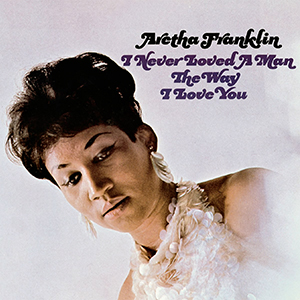
Aretha Franklin – I Never Loved a Man Like I Love You
Where Soul Music Found Its Queen and Never Looked Back
Some albums capture lightning in a bottle. This one captured a whole damn thunderstorm. Aretha Franklin’s 1967 Atlantic Records debut isn’t just an album – it’s the moment soul music found its constitution, its declaration of independence, and its crown jewel all at once. And honey, that crown fit perfectly.
From the moment the organ growls and Aretha’s voice claims its territory on “Respect,” you know you’re not just listening to music – you’re witnessing a coronation. Sure, Otis Redding wrote it, but Aretha OWNS it. She takes his plea for domestic recognition and transforms it into a revolution in two minutes and twenty-eight seconds. That spell-it-out bridge (“R-E-S-P-E-C-T”) isn’t just spelling – it’s soul music’s equivalent of carving your name into history with a diamond.
The title track, “I Never Loved a Man (The Way I Love You),” is the kind of torch song that could burn down a rain forest. Recorded in Muscle Shoals, Alabama (before the sessions famously imploded), it’s a master class in tension and release. The way Aretha wraps her voice around “I don’t know why I let you do these things to me” feels like overhearing someone’s most private thoughts, set to a groove that won’t quit.
“Do Right Woman, Do Right Man” might be the most sophisticated relationship counseling ever set to wax. The gospel-tinged piano (played by Aretha herself – let’s not forget she was a killer musician) lays down the law while her voice preaches a sermon about reciprocity that ought to be taught in schools.
Even when she’s covering other artists, Aretha doesn’t so much interpret songs as she does annex them into her kingdom. Ray Charles’ “Drown in My Own Tears” becomes a masterpiece of controlled emotion – like watching someone turn heartbreak into high art. And her version of Sam Cooke’s “Good Times” feels less like a cover and more like a conversation between old friends about what joy really means.
The backing band, including the legendary Muscle Shoals Rhythm Section and King Curtis on saxophone, provides the perfect musical foundation – present enough to carry the weight but smart enough to know who the real star is. It’s like watching the world’s greatest supporting actors all deciding to make someone else look good.
What’s remarkable about this album isn’t just its individual parts – it’s how it all comes together to create something bigger than itself. This isn’t just Aretha’s Atlantic debut; it’s the moment soul music grew up. The production is crisp but never slick, raw but never sloppy. It’s like they found the exact sweet spot between Saturday night and Sunday morning.
Rating: 10/10 – As essential as oxygen
Essential Tracks: “Respect,” “I Never Loved a Man (The Way I Love You),” “Do Right Woman, Do Right Man,” “Soul Serenade”
Side Note: If this album were weather, it would be that perfect storm that ends a drought and makes flowers grow through concrete.
Historical Impact: This isn’t just a great album – it’s a document of an artist claiming her power. The fact that it was released in 1967, as America was grappling with civil rights, women’s liberation, and cultural upheaval, makes it all the more remarkable. Aretha didn’t just make a soul album; she made a statement about what it meant to be alive, aware, and unafraid in America.
When we talk about perfect albums, we’re usually engaging in hyperbole. This time, we’re just stating facts. “I Never Loved a Man the Way I Love You” isn’t just Aretha Franklin’s arrival – it’s soul music’s finest hour and eleven minutes. They should teach this album in schools, right between American History and Advanced Mathematics, because it’s both historical and precisely calculated to hit you right where you live.